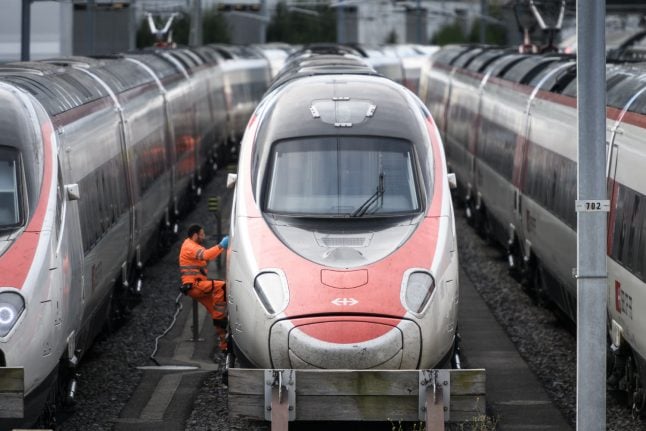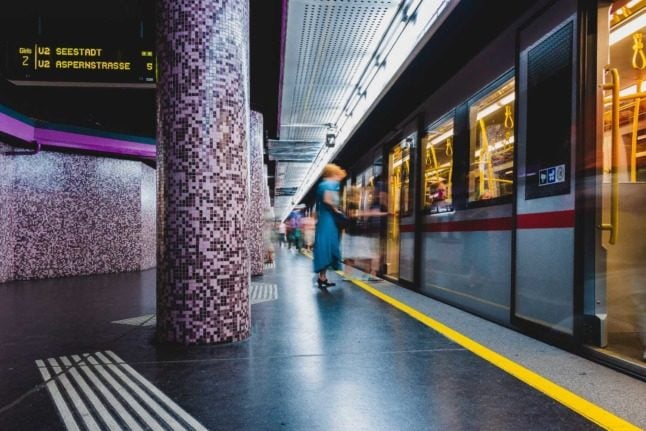Residents and visitors to Switzerland are quick to discover that the stereotype of Swiss punctuality is just that, a stereotype – particularly when it comes to local and federal rail services.
Up to 300,000 passengers arrive late each day across Switzerland – with higher lateness in regional areas – a far cry from the country which built its reputation on neutrality and accurate timepieces.
In response to increasing criticism amid an apparent inability to deal with growing passenger numbers, the SBB has developed a strategy to minimise delays. The changes have been put together by a team of experts in long-distance rail travel.

Image JOHN MACDOUGALL / AFP
While some of the solutions seem a little unorthodox, passengers will at least be pleased that the informal policy of skipping ‘less important stations’ when a train is delayed will be abandoned.
READ: Switzerland's SBB under fire after late trains skip stations to make up time
The SBB have however said that many of the problems were self inflicted, due to failures to adequately plan for growing demand, alongside structural and design problems in the existing network.
SBB CEO Andreas Meyer told the media “there is no quick fix for improving punctuality in sight”.
Supply and demand
The SBB has already begun rolling out additional services, although it has indicated that increased demand is unlikely to be properly met until 2021.
One of the major reasons for the increasing delays is simply the growing demand for long-distance rail services across Switzerland.
Usage increased by seven percent on the previous year in 2019, while the imposition of additional taxes on domestic flights is likely to place further strain on the network.
These issues have been compounded by delays in delivery of the FV Dosto Bombardier, a double decker train which can carry far more passengers.
These trains were ordered several years ago to account for increasing demand – but have not yet been finished.

Photo: FABRICE COFFRINI / AFP
Flexible departures
In public transport infrastructure – as with other forms of traffic – lateness is cyclical, leading to more and more lateness. Under the current system, where one train is late, it may keep others back – crippling the punctuality of the system as a whole.
Flexible departure times will allow trains to leave stations when they are ready.
The SBB’s new directive is to no longer require that the train scheduled to leave a station earlier be required to leave first – meaning that later trains which are more punctual will not be subject to forced delays.
Changes to passenger guidance
The current information provided to passengers by the SBB has been poorly developed, putting strain on particular connecting points and leading to system-wide delays.
Part of this has been due to the practice of advising passengers to change trains at main stations, rather than smaller ones where platforms are easier to navigate.
Where a passenger needs to change their train as part of a connection, new passenger guidance will encourage them to do so where their connecting train leaves from the same platform – rather than at overcrowded main stations.
One such change is to advise passengers to change at Zurich airport rather than the HBF (Central Station), where the transfer time is shorter.
Increasing staff numbers and improving organisation
While taking on more staff has been part of the strategy to cater to increasing demand, another issue has been planning for peak times.
As it currently stands, too few back-up staff have been available on peak days – further exacerbating the impact of delays.
p.p1 {margin: 0.0px 0.0px 0.0px 0.0px; line-height: 14.0px; font: 12.0px Helvetica; min-height: 14.0px}
p.p2 {margin: 0.0px 0.0px 0.0px 0.0px; line-height: 14.0px; font: 12.0px Helvetica}
p.p3 {margin: 0.0px 0.0px 0.0px 0.0px; line-height: 14.0px; font: 12.0px Times; color: #0000e9; -webkit-text-stroke: #0000e9}
span.s1 {text-decoration: underline ; font-kerning: none}



 Please whitelist us to continue reading.
Please whitelist us to continue reading.
Member comments